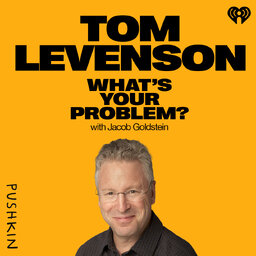Tiny Chips, Giant Stakes
Microchips are the most important driver of technological progress in the modern world, and governments are fighting over who gets to make them.
Right now, most cutting-edge chips are made in Taiwan, a country that China claims as part of its territory. The U.S. government is fighting to keep semiconductor technology out of China, and spending tens of billions of dollars to get companies to build more chip factories in the US.
Chris Miller is a professor at Tufts University and the author of a book called Chip War: The Fight for the World’s Most Critical Technology. In this episode, he talks with Jacob about the extraordinary technology and complex geopolitics of microchips.
In 1 playlist(s)
What's Your Problem?
Every week on What’s Your Problem, entrepreneurs and engineers talk about the future they’re trying …Social links
Follow podcast
Recent clips

The Killer We Refused to See
39:13

The Startup Run by AI Agents
54:16

Can AI Help Solve Alzheimer’s?
33:47
 What's Your Problem?
What's Your Problem?